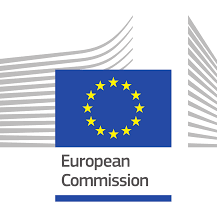Alan Kennedy, Senior Research Development Specialist, explains the ERC Consolidator Grant. The University of Edinburgh is 4th in the UK and 7th in Europe for ERC grants. We’re currently hosting 19 Consolidator Grants.
“The fundamental activity of the ERC is to provide attractive, long-term funding to support excellent investigators and their research teams to pursue groundbreaking, high-gain/high-risk research. Research funded by the ERC is expected to lead to advances at the frontiers of knowledge and to set a clear and inspirational target for frontier research across Europe.” ERC Work Programme 2019.
Profile of a competitive applicant
ERC Consolidator Grants are designed to support excellent Principal Investigators at the career stage at which they may still be consolidating their own independent research team or programme. Applicant Principal Investigators must propose projects which go beyond the state-of-the-art, and demonstrate in their proposals the ground-breaking nature, ambition and feasibility of their project.
These grants are hugely competitive. They are open to applicants from around the world and in 2017, the last call we have the complete data for, there were 2498 applications, with a success rate of 12.3%. This gets better when applying from the UK where we generally see a higher success rate (428 in 2017, with success rate of 13.3%), and better again when applying from the University of Edinburgh as our overall success rate with Consolidator Grants in Horizon 2020 is 21.7%! Which I am sure is a result of the winning combination of excellent PIs and excellent support.
What do you get?
The Consolidator Grant will fund a single PI to work alone or with a team to pursue her/his proposed innovative “frontier research” proposals in any field of research (rather than being led by set priorities).
If successful, you’ll be given up to €2m over a maximum of five years and will be required to spend a minimum of 40% of your working time on the grant (though we recommend at least 60%).
Your application will be submitted to one of 25 panels under three domains: Social sciences and Humanities, Life sciences, Physical and Engineering Sciences. Examples of previously funded projects can be found here, and some examples of full applications in our dossier of successful applications [EASE login required].
However, what you really get with an ERC grant is freedom! You have the freedom to build and run the project of your dreams. You will drive the project at every level, from the research idea to who is included. You can include collaborators from anywhere in the world, and spend up to 50% of your time working outside the EU. You can include more senior colleagues to guide you, and hire PhD students and post docs to train in the new methods you’ll develop. Equipment for your project can also be covered by the grant. There is even an additional €750k, which can be made available to cover the cost of access to large infrastructure, the purchase of large equipment or lab start-up costs if you are moving to the EU for your grant. This additional funding is not granted in all cases; if you think you might need this please do talk to us.
Who should apply?
You must have 7-12 years of research experience since your PhD (prior to 1 January 2019), with extensions available for a number or reasons (including but not limited to maternity/paternity leave and long-term sickness).
You will have already shown research independence and evidence of professional maturity. What this looks like will vary from field to field and so you should apply what is relevant to your area of research. In most cases, it would be expected that applicant Principal Investigators would have produced several important publications without the participation of their PhD supervisor. You should also be able to demonstrate a promising track record of early achievements appropriate to your research field and career stage. These can include significant publications (as main author) in major international peer-reviewed multidisciplinary scientific journals, or in the leading international peer-reviewed journals of your field or the publication of peer-reviewed monographs. Additional work can also be valuable in demonstrating your suitability for a Consolidator Grant, such as invited presentations at well-established international conferences, granted patents, awards, prizes etc. We can provide guidance on what is appropriate.
The next deadline is the 7th of February 2019 (at 4pm UK time) and you can find a link to the call on the European Commission’s participant portal here.
Find out more
On 23 November we will host an ERC Consolidator Grant information event by The UK Research Office, who are the National Contact Point for ERC in the UK. The event will include information about the scheme and case studies from previously successful grant holders. The event is free but registration is required. You can find out more information and sign up here. Further events hosted by the Research Support Office will be added to our events webpage, but if you are planning to apply, or would like more information, you can get in touch with us at any time.
Alan Kennedy is Senior Research Development Specialist in the Research Support Office Funding Team.



